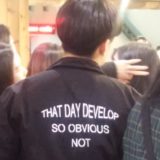Book Review: Fluent Forever
 Fluent Forever: How to Learn Any Language Fast and Never Forget It
Fluent Forever: How to Learn Any Language Fast and Never Forget It
by Gabriel Wyner
Lexplorers rating: 8.5/10
Amazon.com average customer rating: 4.5/5
Language learning can be a lot like exercise and weight loss: most people have tried it and really want to know the secret strategy that will allow them to do it well and with the least amount of effort. And like exercise and weight loss, there is no shortage of language learning experts who would like you to believe that they know that secret strategy (usually so they can sell you books or services). It seems that for every fad diet that claims you can “lose 100 pounds by eating nothing but chocolate and yams!”, there is also someone selling a book claiming you can “learn to speak Chinese like a native in just 10 minutes a day!” In reality, if you spend just 10 minutes a day learning Chinese, in 20 years you will be lucky to be able to even order dinner at a Chinese restaurant. So I was understandably skeptical when I came across Fluent Forever (“How to Learn Any Language Fast and Never Forget It”) by Gabriel Wyner at the library. Much to my surprise, Fluent Forever goes beyond the “fad diet” nonsense and offers a wonderfully practical guide to language learning.
The author begins by laying out what he feels are the three keys to language learning:
- Learn pronunciation first
- Don’t translate
- Use spaced repetition systems
He then goes into detail on each of these keys, providing both theoretical justification from psychological research and practical advice and tools on how to achieve each of the keys. He breaks down the essential resources you need for learning a new language (grammar book, phrase book, frequency dictionary, pronunciation guide, bilingual dictionary, monolingual dictionary). In an appendix, he provides his recommended choices for each of these resources for the most commonly learned languages (Arabic, Mandarin, French, German, Hebrew, Italian, Japanese, Korean, Portuguese, Russian, Spanish). A motivated student could easily follow the step-by-step procedures detailed in Fluent Forever to rapidly make significant progress learning a new language.
I have to admit that one reason I liked Fluent Forever so much was that I already agreed with many of the strong opinions of the author. I got hooked early in the book with his strong recommendation to use the International Phonetic Alphabet for pronunciations and to shun grammar books that “give you Englishy pronunciations for each word.” Similarly, being a big fan of flash cards, I enjoyed the tips and strategies for using flash cards for almost every aspect of language learning, from pronunciation through grammar points. In fact, the bulk of Fluent Forever focuses on the power of spaced repetition systems and how to use existing online resources to build and manage large flash card sets.
Many of the practical approaches recommended in Fluent Forever are likely to be helpful to any language learner. And the organized collection of books and online tools are a valuable resource that should save any learner a great deal of time and effort when getting started. Lists of online resources in any printed book will rapidly become outdated, and the author maintains the Fluent Forever website with updated lists of resources.
The author has clearly been very successful using this set of tools and strategies for learning several languages, and he has written an excellent book detailing his “exercise program.” However, like most exercise programs and diet regimens, the strategies outlined in Fluent Forever will work for many people but are not a panacea. Some people are visual learners who will be very successful embedding images with new words on flash cards. Others find it easier to take advantage of existing native language semantics and learn translations directly. Still others are more successful learning directly from audio sources and can achieve some measure of fluency in a new language while essentially remaining illiterate and never touching a flash card. So while I understand the importance of marketing for selling a language learning book, the subtitle “How to Learn Any Language Fast and Never Forget It” is overselling the universality of the approach just a bit.
While I didn’t necessarily agree with all the strategies recommended in Fluent Forever, I would strongly recommend it for any language learner looking to add to your toolbox of strategies and resources. In reading the book, I did learn some very interesting tidbits from the research world. I also discovered several resources that I think will be useful in my own language learning adventures. The short list of the places I will be exploring:
- The Fluent Forever website contains nicely organized lists of resources for different language learning topics and language-specific resource recommendations
- Anki – a free spaced repetition flash card site
- Forvo – a site with searchable archives of recordings of words by native speakers
- Rhinospike – a site for requesting recordings by native speakers of any sentence you submit
- Lang-8 – a site for requesting feedback from native speakers on submitted writing samples
- Busuu, My Language Exchange, and The Mixxer – language exchange sites for practicing with native speakers










